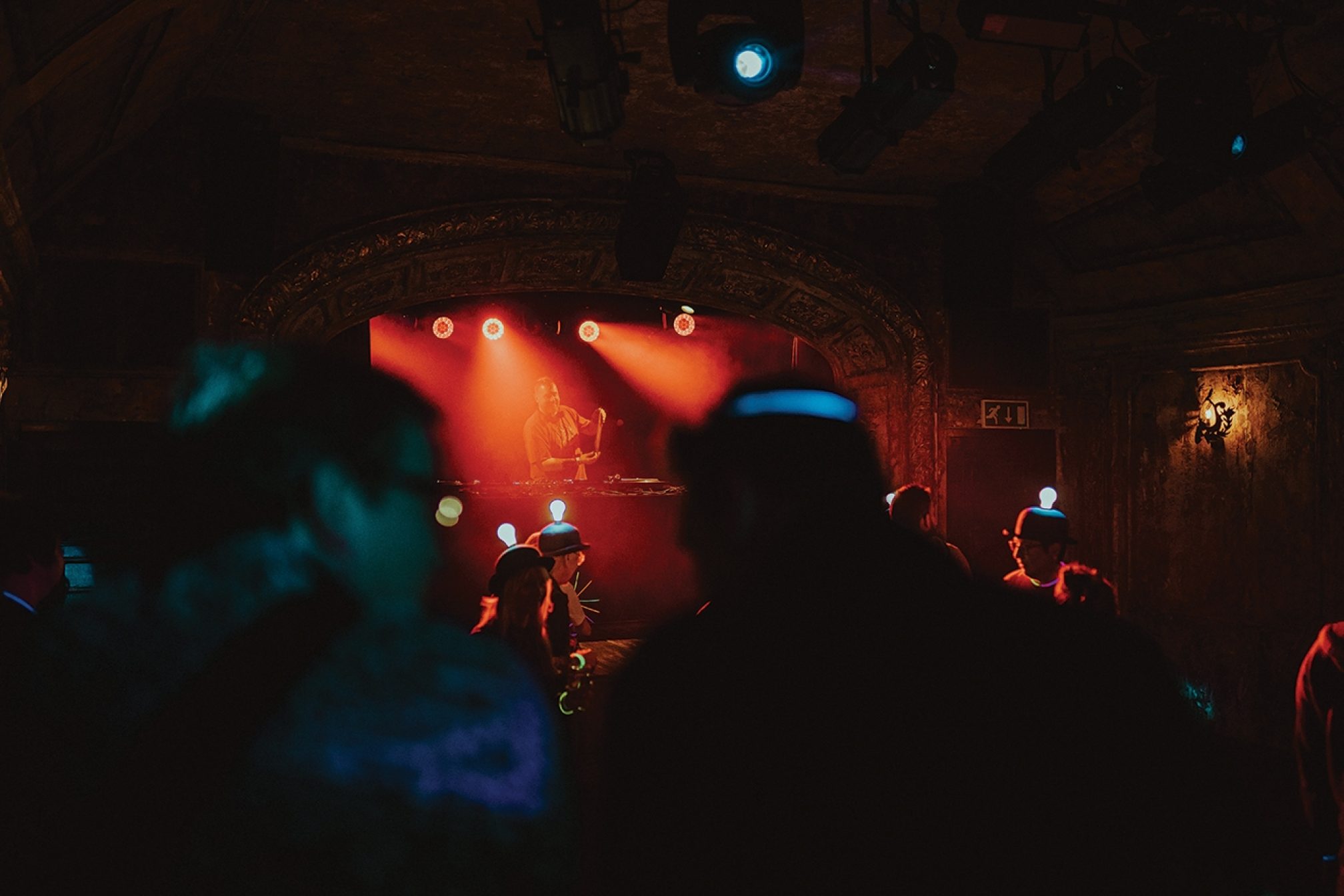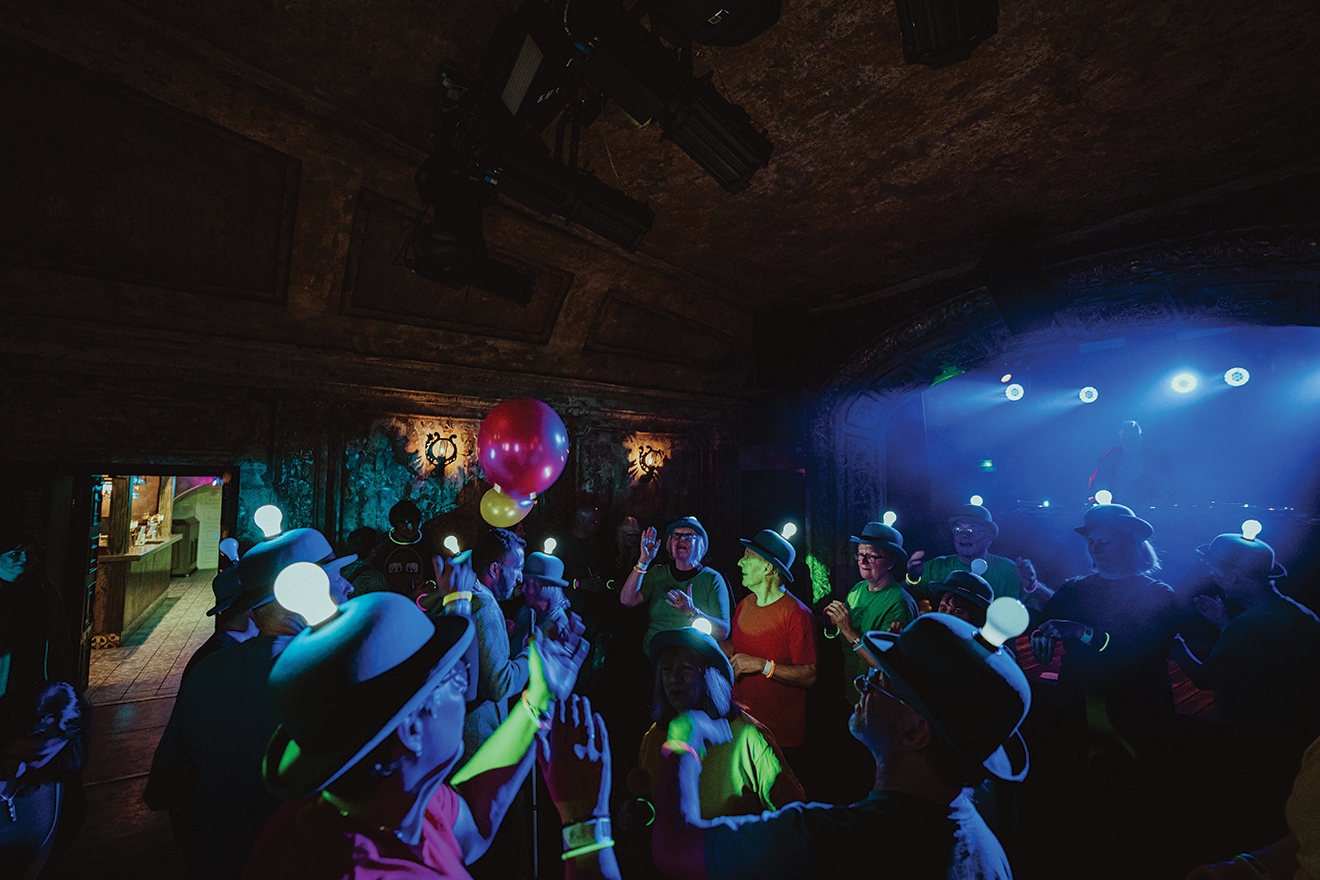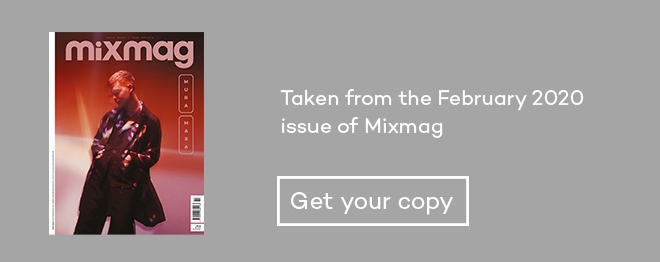 Scene reports
Scene reports
London party Daylight is aimed at people with disabilities and their carers
Daylight at London venue Omeara shows just what's possible for disabled dance music lovers
The steady beat of an Amen break bleeds into the cold, grey afternoon sky and drifts down O’Meara Street near London Bridge. Behind the doors of the maze-like venue, housed in Flat Iron Square, a jungle rave is underway. The main room is dark and filled with dancers with neon glowsticks. Balloons float across the floor as the DJ fills the room with melodic and twinkling d’n’b.
Walking into The Siding, a room beyond the main stage, ravers sit on comfy chairs chatting happily, taking time out from dancing to sip on free herbal teas and coffee. Daylight is the UK’s first accessible clubbing event for adults with disabilities and their carers, and put together by London-based DJ Tony Gurney, aka Groover The Barbarian, who also lives with Crohn’s disease and fibromyalgia. Tony cared for his older brother who had both spina bifida and hydrocephalus, and died from his disabilities in 2000. “With Crohn’s disease I get a lot of fatigue and find it quite difficult to go out clubbing,” Tony tells us after his set. “They’re called ‘nightclubs’ for a reason… and it just seems too daunting.” With this in mind, alongside his passion for jungle and d’n’b, Tony came up with the idea for Daylight: an accessible rave held in the daytime.
Tony recalls a time when he visited a club not far from where we are today, under one of the railway arches. “I can’t remember the name of the club, but they had loads of chairs stacked in front of the disabled toilet. I had to drag myself up the stairs. It’s a bit of a pain in the arse, but I can do it. But my fatigue levels go up, and it means the next day it’ll take me even longer to recover – and it takes quite a while for me to recover from a club night anyway. I know it does with everyone, but my usual state is being in pain and having really bad fatigue. So to do a club night I’ve got to dose myself up, take all my medication and that. There’s no guarantee on a night out whether I’m going to be able to do most of it or jack it in after half an hour.”
Read this next: The 20 best jungle mixes you can listen to online
Events and raves commonly being held at night-time can cause issues for those with additional needs, and it’s not just accessibility. Back in the chill-out area we meet 30-year-old Karishma Shah, who works as a regional campaigns officer at the Royal National Institute of Blind People (RNIB) and also lives with albinism, a genetic condition that affects the amount of melanin in the skin. Melanin is also involved in the development of the retina, causing people with albinism to have eye conditions. “Even really simple things like going up to the bar is a calculation,” she explains. “Is there enough space for me to squeeze between this person? Am I judging the right distance? It can be really mentally draining, and you have to be in a really positive mood to be able to handle it.”
The typical preamble to a night out will usually consist of faffing about changing your outfit a few times, deciding which bar to go to before you head to the club and maybe a few pre-drinks at your mate’s house. But for disabled clubbers, there are so many other factors to take into consideration. “I’m thinking about [all those things] as well as the journey I’m going to take, planning the route. I’m also planning when I’ll go home – if I leave before 12:AM it’s fine, but if I leave later it’s not always a good idea,” Karishma continues. “I have to really psyche myself up.”
“A lot of it’s about communication,” explains Davinder Kullar as he takes a breather from non-stop dancing in the chill-out space – much to the delight of his guide dog Archie, who’s extremely excited to be reunited with his owner, pulling the barrier his lead is attached to as his tail wags furiously. Davinder has the progressive eye condition retinitis pigmentosa, and says that “having staff [who] feel confident to ask [if people need help]” is important: “sometimes people are shy and unsure whether to do it.” He tells us he’s been to events in the past where people think it’s OK to take his cane and play with it. And when he had enough sight to get around without the cane, people would often label him as just being really drunk.

“I’ve been going out clubbing recently and I can say it’s improved so much,” Karishma continues over the soaring vocals of Sofi Mari’s live set. “I went to a club about three weeks ago and used my cane and the staff member just came up to me and asked, “Do you need a guide? Where do you want to go?” and it was amazing. I used to view the cane as a disability, and it is a disability, but now I see it as something that really enables me, and it has made such a difference in my life.”
Tony tells us the biggest challenge of putting on such an event is finding the venue. “I think it seems quite daunting to them,” he ponders. “Clubs just need to take the risk and look at ways they can do things. I’m really hoping that doing this is going to make other people in the industry go ‘Hang on, maybe we could do something like that during the daytime as well’ – because the flip side of that is there’s more revenue coming in so hopefully it’ll help more clubs to stay open if they can look at different ways to engage with their community.”
Read this next: Dance music needs to be more inclusive for disabled artists, DJs and clubbers
He names the organisation Attitude Is Everything, which is working to improve deaf and disabled people’s access to live music with over 160 venues and festivals across the UK now signed up to their Venue And Festival Charter of Best Practice, as a good rallying point for venues: “[There’s] lots of information on there about communicating with people with visual impairments, and ideas for enhancing venues for people with hearing impairments.” Specialised daytime events might well be an interesting option for some clubs, but what Daytime proves is that in 2020 there’s no excuse for ignorance on the part of venues when it comes to engaging with and facilitating disabled clubbers – especially after hearing what lengths disabled clubbers themselves will go to in order to engage with club culture.
As we head back into the main room, DJ Future is beginning his headline slot. A warm, soulful vocal meanders over the top of a dreamy, liquid d’n’b track. A family with a wheelchair user dance together by the rustic and theatrical looking stage, wide smiles on their faces. Sheer joy can be felt emanating through the room. “It’s so groundbreaking,” Tricia from RNIB tells us. “Being in here is a bit emotional. It seems so easy: have a party in the daytime, make it accessible. It’s such a good idea. There should be more.”
Read this next: Get the best of Mixmag direct to your Facebook DMs



